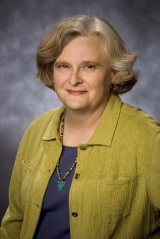Greater Intermountain Node 'Chalk Talk'
February 4, 2021
|
|
Elizabeth F. Howell, MD MS is an Associate Professor of Psychiatry at the University of Utah School of Medicine in Salt Lake City, Utah, with an inpatient and outpatient practice at the Huntsman Mental Health Institute. She is the Training Director for the Addiction Psychiatry and Addiction Medicine fellowship programs and Education Director for the Program of Addiction Research, Clinical Care, Knowledge, and Advocacy at the University of Utah School of Medicine. Dr. Howell is Board-certified in Psychiatry and Addiction Psychiatry by the American Board of Psychiatry and Neurology, is Board-certified in Addiction Medicine by the American Board of Preventive Medicine and holds lifetime certification in addiction medicine from the American Board of Addiction Medicine. |
GIN: Dr. Howell, thank you for talking with us! Can you tell us a little about yourself?
I am an Addiction Psychiatrist and Addiction Medicine specialist and currently Associate Professor in the Department of Psychiatry at the University of Utah. I have worked at Huntsman Mental Health Institute (formerly UNI) for nearly 16 years, mostly working as an inpatient hospitalist with a bit of outpatient care. I have been working in the addiction field for over 35 years, since I was a resident in psychiatry. I started the Addiction Psychiatry and Addiction Medicine fellowships for physicians who have completed Psychiatry and other residencies and have been training director for both fellowships for several years. I am the Education Director for PARCKA. I recently started working on a CTN project through the Greater Intermountain Node.
GIN: You are the site principal investigator for RDD (CTN 0100). Can you tell us about the study?
CTN-0100 is a national, multi-site project funded by NIDA to improve treatment retention and outcomes in people with opioid use disorders. Eligible participants will chose either buprenorphine or extended release naltrexone treatment and will be further randomized to receive different doses or forms of buprenorphine, to use mHealth (mobile health) apps to optimize treatment, etc. Medication treatments are all evidence-based, accepted treatments and free for the participants during the study. The overall study is several years long and very complex; I’m still learning the details. It’s exciting for the University of Utah to have the opportunity to be a Wave 1 site for this study. We anticipate starting recruitment the spring of 2021.
GIN: What are some of the reasons you feel Utah is well equipped to facilitate this research?
Utah has had a tremendous problem with opioid use disorder (OUD) for at least 15-20 years, so there are many Utahns with OUD who want help and could participate in the study. Utahns are generally open to and interested in research to help advance our knowledge about OUD treatment. Plus we have a very supportive infrastructure here with the GIN and great people working on the project!
GIN: What are the outcomes you hope to see come from RDD?
First, I hope we recruit a sufficient number of participants! Then at the end of the overall study, we should be able to identify factors that improve retention in treatment and overall treatment outcomes such as positive changes in drug use, life function, etc. The study will be ongoing for several years, so we will have to wait a while for the results.
GIN: As you mentioned, you are an associate professor of Psychiatry, and the Training Director for the Addiction Psychiatry and Addiction Medicine fellowship programs at the University of Utah School of Medicine. What drew you to this field?
Initially it was purely mercenary—I needed a moonlighting job in residency and the only one available was at an addiction treatment hospital! What kept me going in the field was seeing people get so much better (sometimes very quickly) with appropriate treatment. I realized how ignorant I was about addiction and its treatment, and I wanted to learn more. I am also fascinated by the pharmacology and neurobiology of addiction. The field has grown by leaps and bounds in the past 30+ years, but there are still not enough specialists in addiction or non-specialists willing to treat all the people who want help. There are lots of suffering people with addiction, plus their families, friends and coworkers. If I can help people with addiction in any way, that is a success for me. I have lost many patients to death from addiction, which is the outcome I try to help my patients avoid. I don’t give up easily. I mourn their deaths and redouble my efforts.
GIN: What are your research interests?
Currently, clinical research such as the CTN-0100 project, which involves medication and also newer technologies to enhance outcomes. I am also intrigued by the potential for using neurostimulation therapies for substance use disorders, especially stimulant use disorder which has no accepted effective medication treatment. The resurgence of research on psychedelic drugs for treatment of anxiety, depression, PTSD, and addiction is fascinating—but the research is too time-consuming for me to work on at this time.
GIN: If you could describe yourself in three words, what would they be?
Persistent (stubborn?), Spiritual, and Visionary
